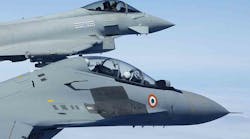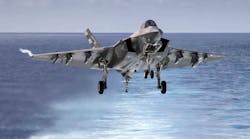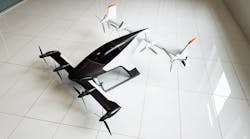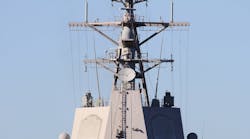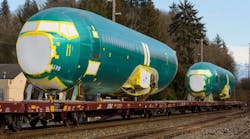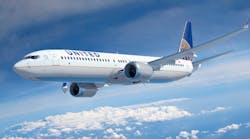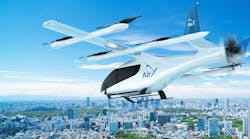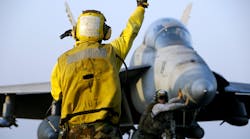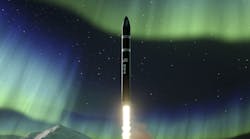Airbus SE and Dassault Aviation agreed to collaborate to develop and manufacture of Europe’s Future Combat Air System (FCAS), including a fighter jet intended to complement and eventually replace the current generation of Eurofighter and Rafale fighter aircraft between 2035 and 2040. Their partnership was confirmed in an industrial-agreement document signed by Airbus Defence CEO Dirk Hoke and Dassault Aviation chairman and CEO Eric Trappier.
Airbus is the leader of the Eurofighter consortium (also including BAE Systems and Leonardo), builder of the Eurofighter Typhoon; and Dassault Aviation is the builder of the Dassault Rafale, both twin-engine, delta-wing multirole fighter jets in service now by, respectively, the U.K. Royal Air Force and the German, Italian, and Spanish air forces; and the French Air Force and Navy, and the Egyptian Air Force.
“Never before has Europe been more determined to safeguard and foster its political and industrial autonomy and sovereignty in the defense sector. Airbus and Dassault Aviation have absolutely the right expertise to lead the FCAS project. Both companies are already cooperating successfully on Europe’s medium altitude long endurance new generation drone program,” stated Dirk Hoke.
The FCAS is coordinating "a system of systems", including a next generation fighter aircraft together with Medium-Altitude Long-Endurance Unmanned Aerial Vehicles (UAVs); the existing fleet of aircraft (which will operate beyond 2040), and future cruise missiles and drones. The overall system will be interoperable, and connected in a larger perimeter with mission aircraft, satellites, NATO systems, and land and naval combat systems.
According to Hoke, the FCAS “schedule is tight, so we need to start working together immediately by defining a joint roadmap on how best to meet the requirements and timelines to be set by the two nations. It is therefore of key importance that France and Germany launch an initial joint study this year to address this task.”
